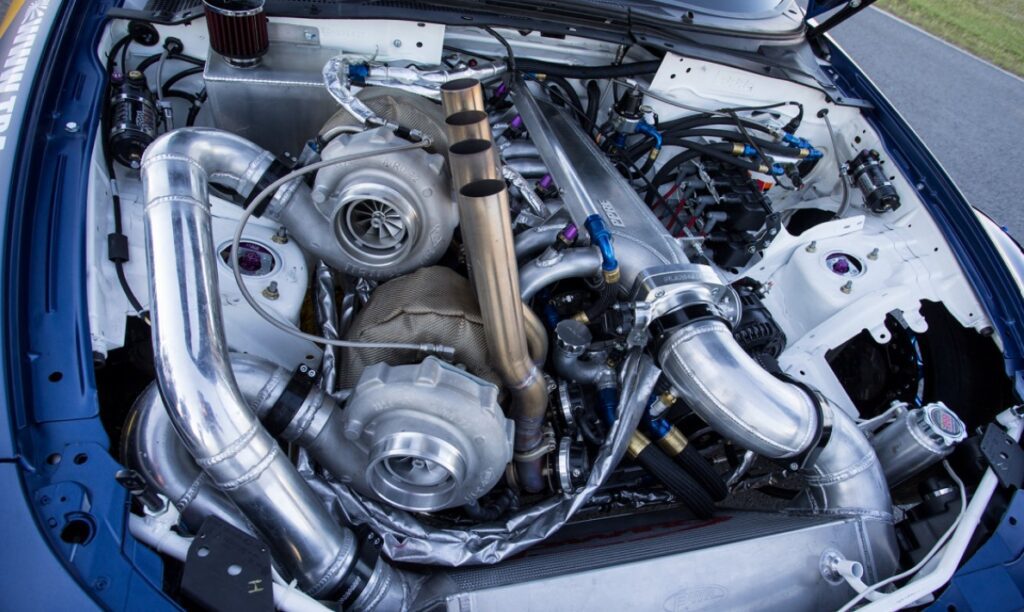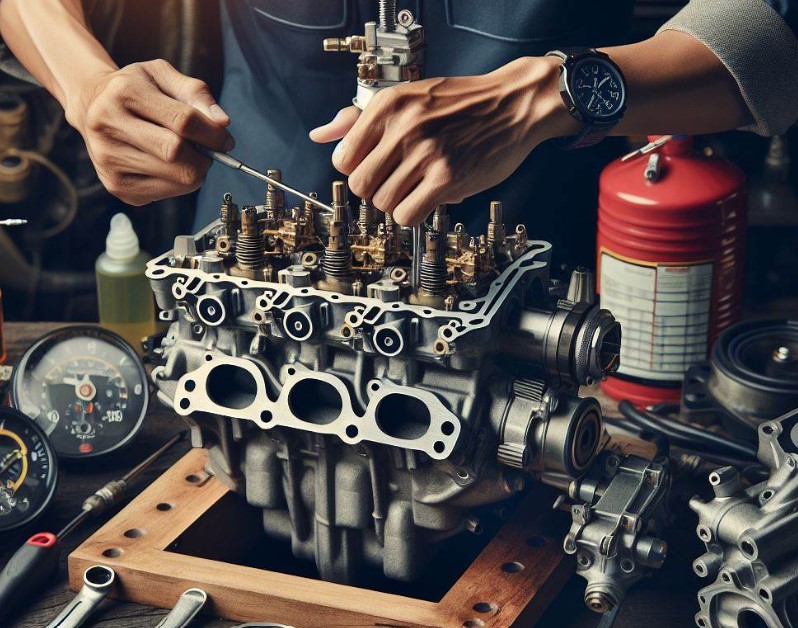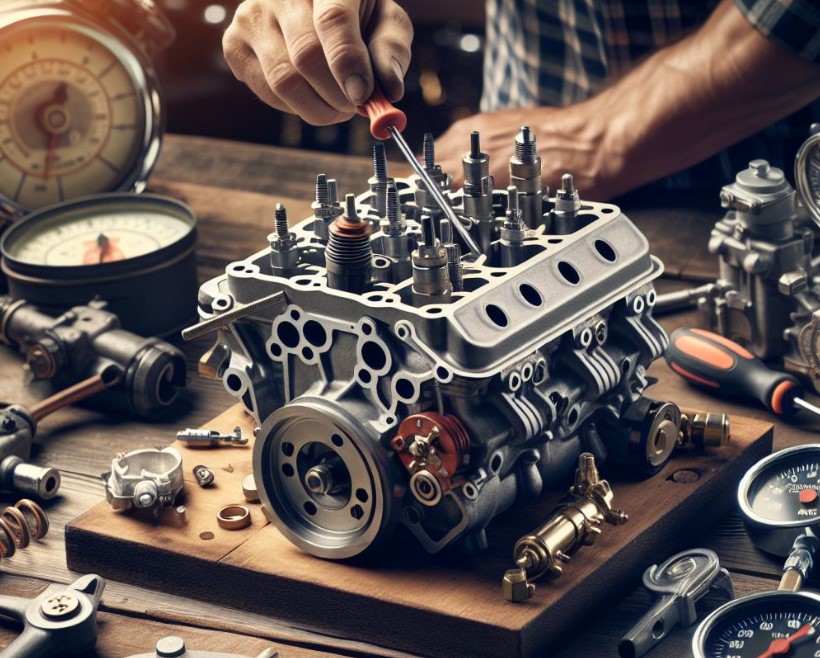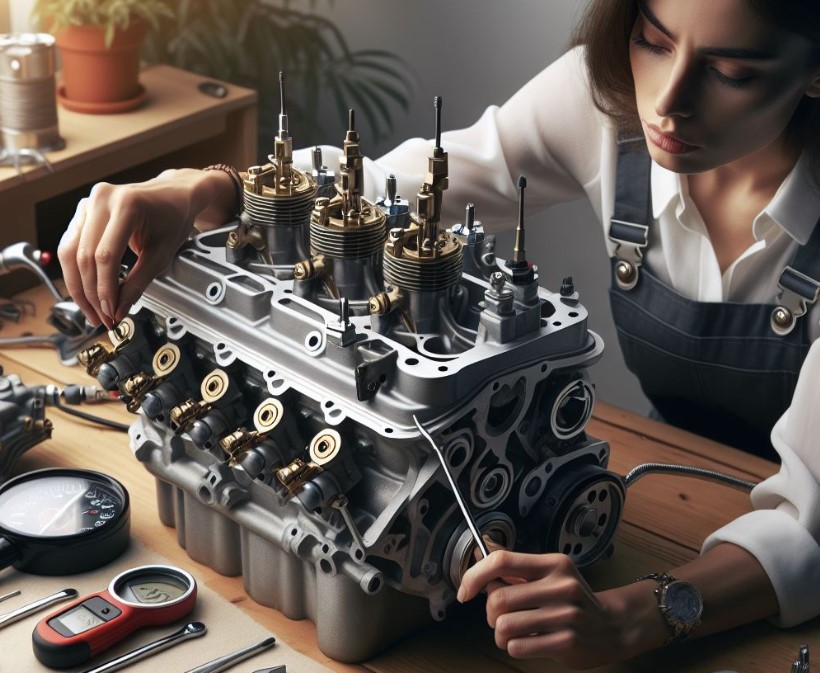Can You Tune A Naturally Aspirated Engine? Explained
Have you ever thought about Can You Tune A Naturally Aspirated Engine? Tuning a naturally aspirated engine can be a game-changer for car enthusiasts. This process involves refining and upgrading various engine components to boost performance. In this article, we delve into the world of naturally aspirated engine tuning, exploring its methods, benefits, and critical considerations.
Key Takeaways
- Naturally Aspirated Engine Tuning: Possible and beneficial for performance enhancement.
- Methods: Include ECU remapping, intake and exhaust modifications, and more.
- Benefits: Improved horsepower, torque, and engine efficiency.
- Considerations: Cost, expertise required, and impact on engine longevity.
Can You Tune A Naturally Aspirated Engine?
Yes, you can tune a naturally aspirated engine. This process typically involves upgrading several key components and adjusting the engine’s software to enhance performance. It’s a popular method among car enthusiasts to extract more power, efficiency, and responsiveness from their engines.

Understanding Naturally Aspirated Engines
A naturally aspirated engine relies solely on atmospheric pressure for air intake. These engines do not have turbochargers or superchargers, making them simpler but less powerful than their forced induction counterparts.
Tuning Basics
Tuning a naturally aspirated engine involves several key steps:
- ECU Remapping: Adjusting the engine’s computer for optimal performance.
- Air Intake and Exhaust System Modifications: Improving airflow to and from the engine.
- Ignition and Fuel System Upgrades: Ensuring efficient fuel combustion.
ECU Remapping
ECU remapping is a primary step in tuning. It involves reprogramming the Engine Control Unit to change fueling, ignition timing, and air/fuel ratio settings for better performance.
Intake and Exhaust System Modifications
Replacing stock air intakes and exhaust systems with performance-oriented ones can significantly improve airflow, thereby boosting engine power and efficiency.
Benefits of Tuning
Tuning a naturally aspirated engine has several benefits:
- Increased Horsepower and Torque: Enhanced engine output for better performance.
- Improved Throttle Response: Quicker and more responsive acceleration.
- Enhanced Fuel Efficiency: More efficient use of fuel, leading to cost savings.
Impact on Engine Longevity and Maintenance
While tuning can enhance performance, it may also affect engine longevity and maintenance requirements:
- Increased Wear and Tear: Higher performance can lead to faster wear of engine components.
- Maintenance Needs: Regular checks and maintenance become more crucial to ensure the engine’s health.

Wear and Tear Considerations
Tuning increases stress on engine components, potentially leading to quicker wear. Regular inspections and replacements may become necessary.
Maintenance and Upkeep
A tuned engine requires meticulous maintenance. Regular oil changes, spark plug replacements, and air filter cleanings are essential.
Cost-Benefit Analysis
Tuning a naturally aspirated engine involves costs and benefits that must be weighed:
- Initial Investment: Cost of parts and labor for tuning.
- Long-Term Savings: Improved efficiency can lead to fuel cost savings over time.
Assessing the Costs
The cost of tuning varies based on the extent of modifications and the quality of parts used. It’s important to consider this investment against the expected benefits.
Evaluating the Benefits
The benefits of tuning, like enhanced performance and efficiency, often justify the initial costs for enthusiasts. However, individual priorities and usage patterns should guide this decision.
Tuning Techniques and Innovations
Advancements in tuning technologies have opened up new possibilities:
- Advanced ECU Software: More sophisticated software allows for finer tuning adjustments.
- Innovative Air Intake Systems: New designs offer better airflow and filtration.
Software Innovations
Modern ECU tuning software provides unprecedented control over engine parameters, enabling more precise and effective tuning.
Hardware Advances
Innovations in air intake and exhaust systems have significantly enhanced the tuning potential of naturally aspirated engines.
How Do You Increase Horsepower In A Naturally Aspirated Engine?
Increasing horsepower in a naturally aspirated engine involves several key methods:

- ECU Remapping: Adjusting the engine control unit can optimize fuel and air mixtures and ignition timing, leading to increased power.
- Upgrading the Air Intake System: A high-flow air intake allows more air into the engine, enabling a more powerful combustion process.
- Installing a Performance Exhaust System: This helps expel exhaust gases more efficiently, reducing backpressure and increasing horsepower.
- Upgrading the Camshaft: A performance camshaft can open and close valves more effectively, improving air intake and exhaust flow.
- Improving the Fuel System: Installing a high-performance fuel injector or pump ensures the engine gets the right amount of fuel for increased power.
Is It Worth Remapping A Naturally Aspirated Engine?
Remapping a naturally aspirated engine can be worth it, depending on your goals. It can lead to:
- Increased Performance: Enhanced power output and efficiency.
- Improved Fuel Economy: Optimized fuel and air mixtures can lead to more efficient combustion.
- Customization: Tailoring engine performance to specific needs or preferences. However, it’s important to consider the cost and potential impact on engine longevity. Professional remapping should be done to avoid damaging the engine.
What Are The Pros Of A Naturally Aspirated Engine?
The advantages of naturally aspirated engines include:
- Simplicity and Reliability: Fewer moving parts than turbocharged engines, leading to potentially lower maintenance costs and longer engine life.
- Linear Power Delivery: Predictable and smooth acceleration, with power increasing progressively with engine speed.
- Responsive Throttle: Immediate engine response to throttle inputs without turbo lag.
- Sound: Often preferred for their distinctive and purer engine sound compared to turbocharged engines.

What Are The Cons Of A Naturally Aspirated Engine?
The disadvantages of naturally aspirated engines are:
- Limited Power Output: Without forced induction, these engines generally produce less power and torque compared to turbocharged or supercharged engines of similar size.
- Less Efficient at High Altitudes: Performance can diminish at high altitudes where the air is thinner, as they rely on atmospheric pressure for air intake.
- Potentially Higher Fuel Consumption: To achieve high power levels, they may require more fuel, especially in performance-focused models.
- Size and Weight: To match the power of smaller turbocharged engines, naturally aspirated engines often need to be larger and heavier.
Can You Turbo A Naturally Aspirated Engine?
Yes, you can add a turbocharger to a naturally aspirated engine, but it requires significant modifications:

- Turbocharger Installation: Involves adding the turbo, intercooler, and associated piping.
- Engine Strengthening: The engine may need upgraded internals (like pistons and connecting rods) to handle the increased pressure and power.
- ECU Remapping: The engine’s control system must be reprogrammed to manage the turbocharged setup.
- Upgraded Fuel and Exhaust Systems: To accommodate the increased air and fuel flow. It’s a complex and costly process, and not all engines are suitable candidates for turbocharging.
Conclusion
Tuning a naturally aspirated engine is a viable and often rewarding endeavor for car enthusiasts. It offers improved performance, better engine efficiency, and a more enjoyable driving experience.
However, it requires careful consideration of costs, benefits, and potential impacts on engine longevity. With the right approach, tuning can transform a naturally aspirated engine into a more powerful and efficient machine.
People Also Ask
Are there legal considerations to keep in mind when tuning an engine?
Yes, there are legal considerations, especially regarding emissions standards and noise regulations. Tuning that leads to increased emissions or excessive noise can make the vehicle non-compliant with local regulations. It’s important to be aware of these laws before undertaking any tuning project.
Can any naturally aspirated engine be tuned?
While most naturally aspirated engines can be tuned, the extent of the tuning and the results may vary depending on the engine’s design, age, and condition. Some engines are more conducive to tuning than others.
How often should a tuned naturally aspirated engine be serviced?
A tuned engine should be serviced more frequently than a standard one, due to the increased stress on its components. Regular checks of the oil, spark plugs, and air filters are essential, along with periodic inspections by a professional.
Can tuning a naturally aspirated engine improve fuel efficiency?
Yes, tuning can sometimes improve fuel efficiency. By optimizing the air-fuel mixture and ignition timing, the engine can operate more efficiently, burning fuel more completely and reducing waste.

Welcome to the exhilarating world of Matt Rex, a professional car racer turned renowned vehicle enthusiast. Immerse yourself in his captivating blog as he shares heart-pounding adventures, expert reviews, and valuable insights on cars, trucks, jets, and more. Fuel your passion for speed and discover the beauty of vehicles through Matt’s engaging stories and meticulous expertise. Join the ever-growing community of enthusiasts who find inspiration and expert advice in Matt Rex’s blog—a digital hub where the thrill of speed meets the pursuit of knowledge.





![International DT466E Problems [All You Need To Know]](https://www.turbochaos.com/wp-content/uploads/2024/01/International-DT466E-Problems-768x511.jpg)

